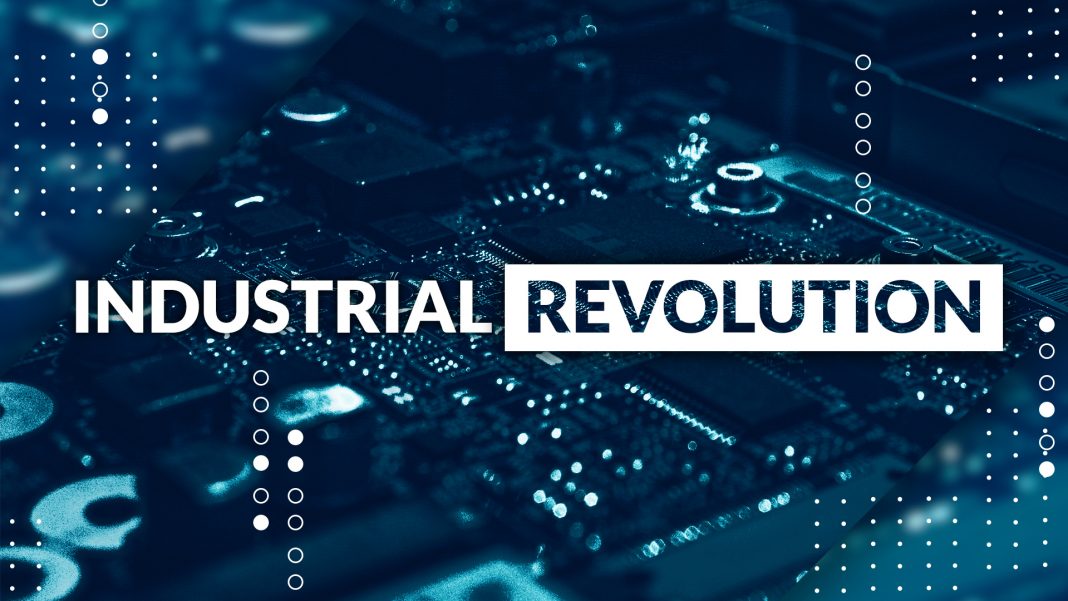What is It? The Issue and Challenges
Growing your business in the modern age requires technological acceptance. The world is full of failure stories where businesses, despite being prominent in the previous decades, faced downfall and vanished completely or partially. So, it doesn’t matter if you’re into a traditional corporation or running a digitalized network, you have to stay in the revolution to survive.
Over the past decades, Malaysia, like several other nations, has been into different industrial amendments. And fortunately, the timely adaption has given sweet fruits to those who trusted new adjustments as per their industry requirements. However, the 21st century is devoted to the fourth sectorial change called the “Industrial Revolution 4.0”. So let’s overview the Industry 4.0’s hurdles, challenges, and benefits to Malaysia.

History of the Industrial Revolution
Industries around the world have been into different phases until they have reached the Industry 4.0 era. It’s a centuries-old phenomenon that began with the first industrial revolution and now revolving around the fourth.
The First Industrial Revolution
The First Industrial Revolution was all about water, steam, coal, and mechanical advancements. It introduced steam engines and several other innovations, such as the “Power Loom” and the “Cotton Gin”. These inventions permitted large scale production of goods, like textiles.
Moreover, it reshaped peoples’ perception and helped them earn a better livelihood. The civilization relocated from isolated villages, and cities began to welcome all young and old with open arms.
The Second Industrial Revolution
The manufacturing of products went enormous as the second industrial revolution gifted powerful electricity to the world. The era between 1870 and 1914 gave rise to internal combustion engines, which finally gave birth to the automobile industry.
The period made people saw the first electric light bulb invented by Thomas Edison, as well as, and the first gasoline engine car by Carl Benz.
Revolution 2.0 was known for the increased utilization of petroleum, electric current, and steel. Thus, allowing regional business expansion.
The Third Industrial Revolution
The third industrial revolution started in the 1950s circa. During this period computers were introduced. Businesses learned new communication ways. Letters were converted to emails and fax. Information transference became quick.
And people witnessed the advent of automation, robotics, microprocessors, transistors, and of course, the internet. Revolution 3.0 has made the world a global village, and its 4.0 revolution’s foundation stone in Malaysia and the rest of the world.
Understanding Industry 4.0
While the third revolution still exists, organizations and individuals are slowly moving to industrial revolution 4.0. The fourth revolution is the advanced form of machinery and technology. In other words, it’s about tackling business challenges through smart systems utilizing the Internet of Things (IoT) and Artificial Intelligence (AI).
It is important to remember that the third revolution is all about technological creation, such as computers, and other machines. Whereas, Industry 4.0 is about connectivity between one machine to another. As a consequence, it will allow advanced automation to take over industries where humans will command machines to do certain jobs.
So, Industry 4.0 is the “smart” revolution where every business has to adopt smart solutions if it desires to survive until the next big shift. And the year 2020, being all about the pandemic, has once again proved that Malaysian firms are in dire need of accepting the new revolution for growth and stability.
Current Issues with Industry 4.0 in Malaysia
Despite conforming to Industry 4.0 in Malaysia, the revolution still confronts numerous issues on implementation, such as:
1. Management and Governance
No matter how big or small the industry or business is, a country’s governance system has a deep impact on the management. That’s why good governance is referred to as the soul of a successful organization. Its presence plays a vital role for companies to achieve their targets and accomplish their short or long term goals.
Moreover, it helps identify the main ethical and legal boundaries for shareholders and serves a larger part of the community.
But according to Malaysia’s Ministry of International Trade and Industry, local organizations lack coordination in moving towards the Industry 4.0 vision. This results in the state’s isolated efforts, as the stakeholders are unwilling to adopt the required technology. Also, there are no fully government-initiated programs supporting Industry 4.0 specifications.
So the first issue appears to be that the business owners and governance system are not on the same page when it comes to the fourth industrial revolution.
2. Lack of Proper Infrastructure
The second issue is infrastructure. Although Malaysia is an advanced country that welcomes Industry 4.0, there are still inadequate technological supply and training centers in major industries.
For instance, some companies don’t even savor broadband, which is, undeniably, the most essential prerequisite of the fourth revolution. And even if some firms have access to high-speed internet, they don’t pay much attention to training their employees for future needs.
3. Restricted Digital Integration
Most Malaysian companies haven’t stepped into digitalization. They still rely on outdated methods to perform business activities. Supply chain and manufacturing departments are the prime examples where digital integration is absent.
So it seems like that Supply Chain 4.0, as well as, Manufacturing 4.0 concepts are yet to be unearthed. Otherwise, businesses may not address to new customer demands along with technological challenges.
4. Limited Training Gurus and Narrow Ecosystem
Sadly, people are unaware of Industry 4.0, and those who know don’t bother about training others. Also, the young generation is not being told about the fourth revolution. The topic is out of the syllabus due to a fewer number of experts.
Malaysia faces a shortage of competitive Industry 4.0 players if compared with other stable economies like the US. It is because the subject is neither discussed nor researched in universities and several research institutes.
And as a result, businesses don’t receive updated knowledge and suggestions even from renowned training gurus because even they don’t perceive much about Industry 4.0.
5. Weak Funding and Incentive
Research and development require funds to spread awareness, educate business owners, and give monetary benefits to the trainers. Nevertheless, there’s no specific incentive and financial support for Industry 4.0 in Malaysia.
Therefore, the country goes through a series of problems, including a lack of testing, prototyping, and technological upgrading. As a consequence, organizations and individual business owners are incompetent and unprepared for the new revolution.
Challenges with Industry 4.0 in Malaysia
Industry 4.0 is the new face of interaction between customers and businesses in Malaysia. But like issues, some huge challenges need to be addressed to assure each Malaysian enterprise never misses any growth opportunity. So as a business owner, let’s probe the expected hurdles which are blocking your sole proprietorship, partnership firm, or a company from entering into the future business world.
1. Implementation of New Business Model and Strategy
Do you still use your grandfather’s typewriter to write a business proposal, and use telegram to send it to your local and international clients? No, you don’t because they are antiquated arrangements, and you decided to change the communication strategy to stay compatible with the current revolution.
According to Forbes, Industrial Revolution 4.0 requires new business models and strategies to increase your business’s competency. But, unfortunately, most Malaysian companies are too vulnerable to accept, create, and perform changes. They still rely on old work ethics, which won’t take them anywhere new.
2. Department Integration
Industry 4.0 is the fastest way for internal communication, but many firms don’t use new integration tools to take quick actions against customer queries. There’s a lack of incorporation in Malaysian business settings that restrict and delay smooth communication flow from one department to another. As seen in the issues, unstable internet and using old interconnection methods are some main challenges to the fourth revolution in Malaysia.
Conversely, there are numerous ways to overcome such challenges. For instance, Net Onboard offers a powerful office management tool like Office 365 that is available in four different affordable plans to help increase your business integration.
Similarly, you can shift your business to cloud computing by opting Net Onboard’s Dedicated Server to experience excellent department unification.
These software will make your business a few clicks away no matter what part of the world you would be in. That’s the power of the fourth industrial revolution.
3. Staff Training
Even if Industry 4.0 becomes a widespread in Malaysia, it would be a big task for local businesses to train their staff so they may tackle business affairs by using the necessary tools. Big guns may survive by spending more on staff’s training and development programs, but small and medium-sized businesses will need to look for easy solutions to manage and run their respective firms.
4. Change in the Organization’s Culture
Did you know that many companies are already using robots and the latest programs to do jobs that were previously meant for humans? From harvesting to logistics, many international organizations are using modern software and AI technology to get the job done.
For instance, a hardware store in California, helps customers find “things”, as well as, assist managers to keep inventory record. And even a small pizza restaurant in Pakistan has employed robots to serve customers their favorite flavors. And all these modifications have been producing great profits for the business owners.
However, Malaysian businesses are reluctant on bringing organizational change. Instead of saving humans for essential tasks and allowing technology to do ordinary chores, they are still using the human workforce as they’re stuck with the “traditional” business culture.
5. Awareness Scarcity
One of the main reasons why Malaysian businesses are not prepared for the new revolution is because they don’t have sufficient knowledge. They don’t have a clear understanding about the perks of using Industry 4.0 technologies. And providing them awareness is one great challenge for the government.
6. Insufficient Recognition
Indeed, there are a few Malaysian companies that are improving themselves by implementing the latest technology into their system, but they are not well-recognized. Their success stories aren’t properly highlighted and used to convince and motivate other businesses to switch to Industry 4.0. It is because there’s no centralized information platform to learn best practices with the help of relevant case studies.
7. High Investment Cost and Fear of Payback Period
The next challenge is that Malaysian companies are not ready to invest in the Industry 4.0 vision. They think that buying new technology would be a waste of money, as they won’t get profits any sooner. Sadly, there’s no authentic source available to inform them about the long term benefits of embracing the fourth industrial revolution.
8. Data Protection and Security
Many local businessmen are worried about the security threats and data leaks they may face after implementing Industry 4.0 technology to their organizations. They don’t trust eCommerce solutions and online business management, as they believe they have to fight back some terrible intruders and malware to save their business entity, as well as, customers’ private information.
So having a similar concern is legit, but that shouldn’t stop you from growing your business. That’s why Net Onboard comes with another solution to protect your company all year round. Now, you can secure your online business through Netgate pfSense Firewall. It’s a firewall appliance that is proven and trusted by millions of clients worldwide.
Impact of Industry 4.0 in Malaysia
Industry 4.0 will bring joy and prosperity to every single Malaysian industry. Its benefits will include:
- Improved productivity
- Real-time tracking of business data and supply chain
- IoT approved products for assuring higher quality
- Enhanced sustainability
- Increased sales and customer flow
- Maximized profits
Industry 4.0 in Malaysia is not a myth. It is happening, and businesses are relishing the advantages. Nevertheless, there are several problems and obstacles when it comes to completely execute fourth revolution technologies. But there are some great tools, software, and programs, which can help be applied to your organization to make sure it stays futuristic, 100% secure, and forever emergent. And Net Onboard is pleased to help you achieve your business goals effectively by providing top-notch technological solutions.
























